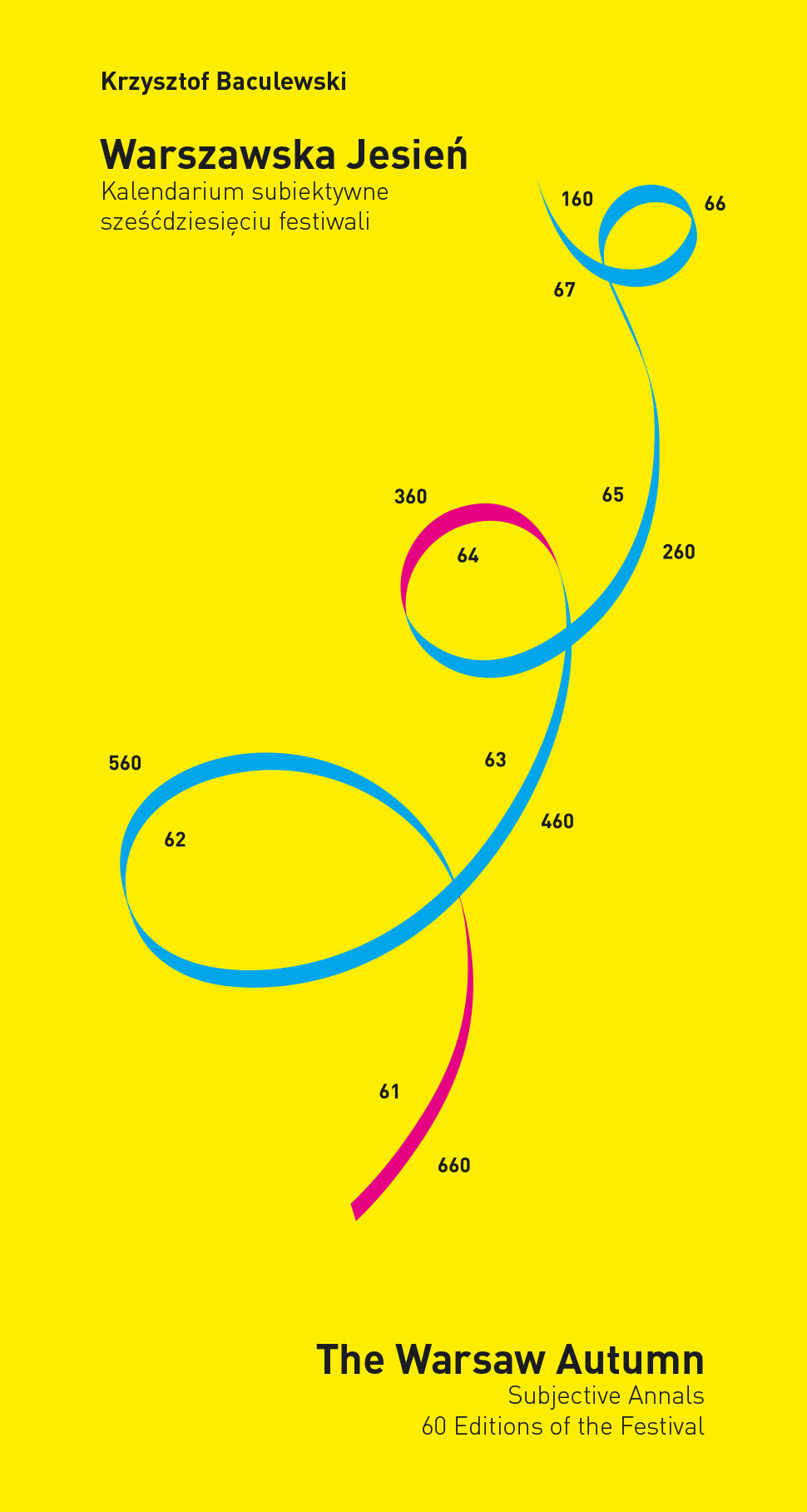
Krzysztof Baculewski "Subjective Annals 60 Editions of the Festival"
The 50th edition of the 'Warsaw Autumn' - another modest jubilee. Modest - because it did not occasion any grand celebrations. Still, POLMIC (Polish Music Information Centre) did release a retrospective set of ten CDs (Polish Collection of the 'Warsaw Autumn' Festival 1956-2005), on which the compositions were arranged (at least to a certain extent) by genre and style. The University of Warsaw hosted a conference entitled 'The Warsaw Autumn as a Realisation of Karol Szymanowski's Vision of Modern Polish Music. Modernism in Postmodern Times.' Similarly as in 1966, the programme book contained many historical photographs.
New concert venues included the Warsaw Centre EXPO XXI and Montownia Artistic Centre (in the old YMCA building). The departure from traditional philharmonic concert situations had already become a tradition in itself. This trend would be continued in later years.
The programme of the 50th edition itself did not contain any special anniversary events. ere were, however, several reminiscences from the beginnings and the middle years of the Festival history: Henryk Mikołaj Górecki's Concerto for Five Instruments and String Quartet (1957), Włodzimierz Kotoński's Music for 21 Instruments and Percussion (1957), Witold Lutosławski's first aleatory piece, Jeux vénitiens (1961), Tadeusz Baird's most avant-garde composition - Étude for vocal orchestra, percussion and piano (1961), the 2nd part of Krzysztof Penderecki's Utrenja (1971), Wojciech Kilar's Upstairs-Downstairs (1971) and Kazimierz Serocki's Fantasia elegiaca for organ and orchestra (1972). New Polish music was mostly represented that year by orchestral or large-scale chamber music: Paweł Szymański's Ceci n'est pas une ouverture, Paweł Mykietyn's Symphony No. 2, Magdalena Długosz's Gemisatos for orchestra, percussion and electronics, Ewa Trębacz's things lost, things invisible for ambisonic space and orchestra, Roman Berger's Improvisation sur Herbert, Wojciech Ziemowit Zych's Tremor, Lidia Zielińska's Conrad's Seven Islands, Tadeusz Wielecki's The Valley of Dry Water, Elżbieta Sikora's Le Chant de Salomon, Krzysztof Wołek's 'Warsaw Autumn' debut - Eppur si muove, Zbigniew Bargielski's Nocturne in Red and Blue, Aleksander Lasoń's Symphony No. 4 'SATJA', and Jerzy Kornowicz's Build-Ups. Polish chamber music in the Festival programme included: Krzysztof Baculewski's cycle of Études for piano, Dobromiła Jaskot's Linearia, Szábolcs Esztényi's Studies, Toccata and A Look from Afar, as well as works by Aleksandra Gryka, Bettina Skrzypczak, Dominik Karski and Krzysztof Knittel.
This was also the last edition of the 'Warsaw Autumn' in which orchestral concerts took up as much as half of the programme. ese were concerts by the Polish National Radio Symphony Orchestra, the Karol Szymanowski Academic Symphony Orchestra of Katowice, SWR Sinfonie-Orchester Baden-Baden und Freiburg, Sinfonia Varsovia, the New Music Orchestra, Warsaw Philharmonic, as well as large chamber ensembles: Megaron, the AUKSO, and Israel Contemporary Players. Of foreign works in the Festival programme, one should note: Kaija Saariaho's Notes on Light, Gérard Grisey's L'Icône paradoxale, Iannis Xenakis' Nomos Gamma, harpsichord pieces by György Ligeti, Helmut Lachenmann's Schreiben, Giya Kancheli's Kápote, Georges Aperghis' Zeugen, Karlheinz Stockhausen's Oktophonie, older works by Luciano Berio, George Crumb, John Cage, Friedrich Cerha, Klaus Huber, as well as more recent compositions by Mathias Spahlinger, Martin Smolka, Jean-Claude Risset, Irinel Anghel, James Dillon, and others.